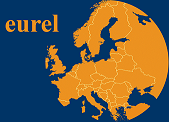Conference theme addressed: How can nonreligion be defined, and how can the “nones” be grasped and taken into account in studies on religion?
This paper draws on findings from an ethnographic study of nonreligious childhood, examining what it means to grow up nonreligious in contemporary Britain. While there has been a small but growing body of social research exploring forms of nonreligion and unbelief amongst teenagers and young people in recent years, very little is known about the nature, varieties and everyday lived realities of children's nonreligion. Existing literature on religion and childhood (e.g. Orsi 2005, Ridgely 2005, 2012, Scourfield et al. 2013, Hemming 2015, Strhan 2017) has mostly addressed the experiences of children identified as religious and/or ‘believing'. In response, our research focuses on the everyday lived realities of unbelief and nonreligious identity, exploring how, when and where children learn to be nonreligious, and how children negotiate and experience their nonreligion across both home and school. Drawing on data gathered from three contrasting geographical ‘microclimates' of religion and nonreligion in the UK, this paper explores the sociocultural variations of nonreligion, considering the culturally and geographically contingent nature of the formation of children's nonreligious identities (Voas and McAndrew, 2012). This paper will focus particular attention on how children conceptualise, negotiate and experience their nonreligious identity, learning what it means to be nonreligious from the perspective of a child. This paper will consider how nonreligious children negotiate and experience aspects of school life such as collective worship and religious education that are regulated by legal requirements in relation to religion and education. Additionally, this paper will also reflect on our findings about nonreligious identity and family life, exploring how children reflect on this in relation to their own identity and that of their parents or siblings.

 PDF version
PDF version
